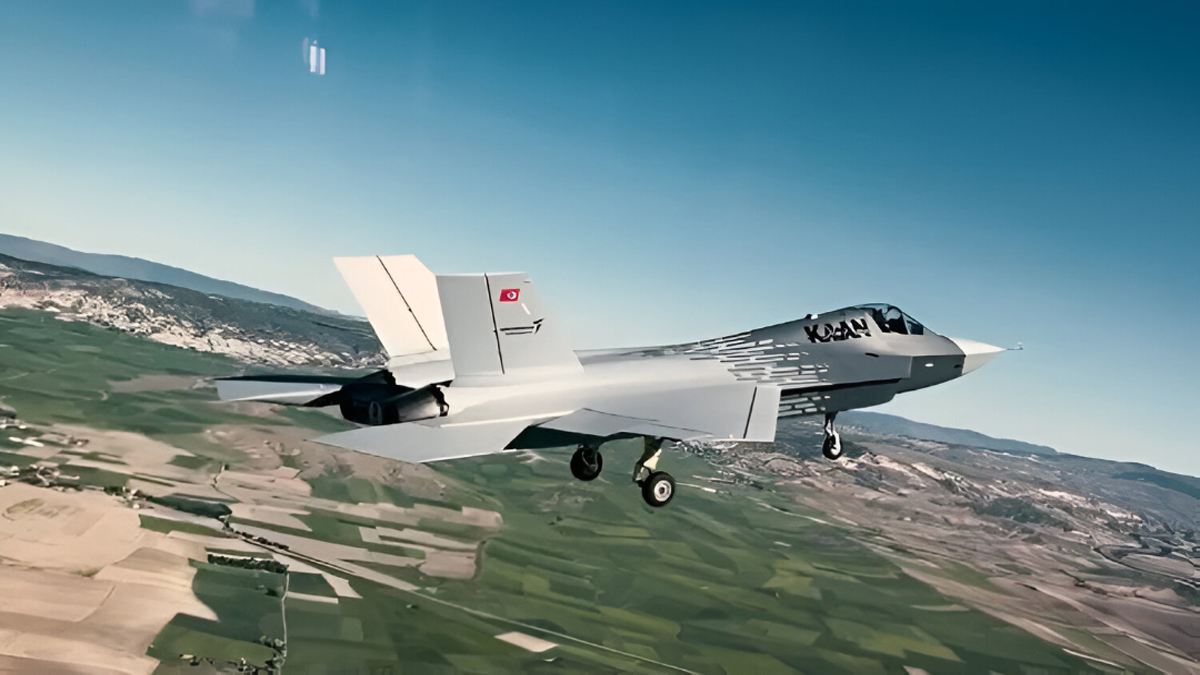Now Reading: Turkey Secures Landmark Fighter Jet Export Deal with Indonesia Amidst Regional Geopolitical Shifts
-
01
Turkey Secures Landmark Fighter Jet Export Deal with Indonesia Amidst Regional Geopolitical Shifts
Turkey Secures Landmark Fighter Jet Export Deal with Indonesia Amidst Regional Geopolitical Shifts

In a significant move for its burgeoning defense industry and a clear demonstration of its evolving geopolitical alignments, Turkey has announced its first-ever export deal for its domestically developed KAAN fifth-generation fighter jets with Indonesia. The landmark agreement, confirmed by Turkish President Recep Tayyip Erdogan on Wednesday during the Indo-Defence 2025 exhibition in Jakarta, involves the delivery of 48 KAAN jets to Indonesia, with the first units expected by 2028. The deal also includes provisions for integrating Indonesia’s local defense expertise into the production process, signaling a deeper collaborative partnership.
This agreement comes at a crucial time for Turkey, as it navigates complex international relations and seeks to expand its global defense footprint. The timing is particularly noteworthy given Ankara’s recent and overt support for Pakistan in its military escalations with India. This backing, which has included expressions of solidarity and reports of military assistance, has drawn strong condemnation from New Delhi and led to calls for boycotts of Turkish products and services in India.
The KAAN fighter jet, which successfully completed its maiden flight in 2024, is a cornerstone of Turkey’s ambition to achieve full self-reliance in advanced defense technologies. The export deal with Indonesia is a major boost to this vision, highlighting Turkey’s growing capabilities in producing sophisticated military hardware. The financial details of the agreement have not been fully disclosed, but some reports suggest a value of up to $10 billion.
The deepening defense ties between Turkey and Indonesia are evident in other joint ventures as well, such as an earlier agreement to jointly develop a drone production facility. This partnership reflects a strategic alignment between the two nations, aiming to enhance their respective defense capabilities and potentially reshape regional power dynamics.
While Turkey celebrates this export success, its close military ties with Pakistan continue to be a source of concern for India. Ankara’s consistent diplomatic and military support for Islamabad, particularly on issues like Kashmir, has led to a noticeable strain in India-Turkey relations. India has actively sought to counter this by strengthening its strategic partnerships with countries that are rivals or critics of Turkey, such as Greece, Cyprus, and Armenia.
The KAAN deal signifies Turkey’s intent to become a major player in the global defense export market, diversifying its partnerships and asserting its influence. However, this expansion is not without its geopolitical repercussions, as seen in the heightened scrutiny and diplomatic tensions with countries like India. The coming years will reveal the full impact of these evolving alliances on regional stability and international relations.










